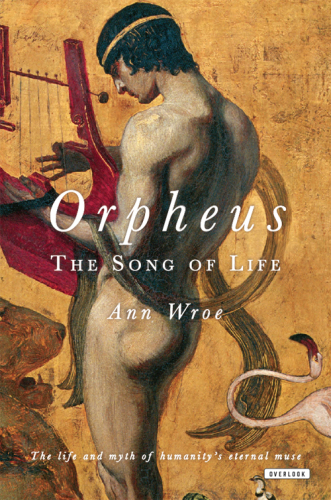
Orpheus
The Song of Life
- اطلاعات
- نقد و بررسی
- دیدگاه کاربران
نقد و بررسی

April 2, 2012
Western icon and poets’ poet, Orpheus is so mutable that, like many figures of ancient religious traditions, it’s difficult to tell where reality leaves off and myth begins. Wroe (Being Shelley: The Poet’s Search for Himself), a writer and editor for the Economist, seeks out the archetypal dimensions of her exquisite figure, one discovered not only in Greek and Roman writings but also in Hindu Vedas, Babylonian scripture, and Irish stories. She is deliberately less clear in separating story from fact. Real or not, as supposed inventor of the alphabet, Orpheus remains male muse to writers and composers as diverse as Rilke, Anouilh, Valéry, Bacon, Plato (who was not known for worshipping at the gooey altar of art), Ovid, Cocteau, Milosz, Monteverdi, and more. Orpheus even passes from history in a Christ-like manner; overtly identified with Jesus by the fifth century, he is said to have been violently killed at sunset. It remains unclear whether the musician-poet is buried in the foothills of Mount Olympus or near lesser known Kardzhali in Bulgaria. Wroe develops her odd blending of real and unreal, somewhat reminiscent of the writing of Edith Hamilton, within seven chapters, one for each string of Orpheus’s lyre, and the book sings in a learned, singular manner. Agent: Andrew Wiley, The Wiley Agency.

Starred review from April 1, 2012
Economist briefings and obituaries editor Wroe (Being Shelley: The Poet's Search for Himself, 2007, etc.) delivers a transformative adventure of myth. The story of the semi-god Orpheus, the young man with a lyre, has been told and retold across the ages. His music enchanted the trees, calmed the seas and gave birth to light, life and love. According to poet Rainer Maria Rilke, Orpheus taught his followers to "become what you are." Wroe's melodic style breathes new life into his adventures with Jason and the Argonauts, his eternal love of Eurydice and interminable mourning for her and descent into Hades. Orpheus appears in some guise in a wide variety of cultures across centuries--e.g., as a Thracian king, Sir Orfeo in Breton and Irish stories or his invocation on a fifth-century BCE sacrificial token from Olbia on the Black Sea. Even with all that, however, he was not a true god, but only halfway divine; as Horace wrote, "the gods' interpreter." As Wroe writes, "godhead gradually slipped away from him, leaving only a sense of election and the power, through his music, to change landscapes, seasons, hearts." In her tuneful prose, the author recounts the influence of Orpheus on a veritable pantheon of writers and musicians, including Ovid, Virgil, Milton, Shelley, Keats, Cocteau and a host of others. Wroe brings mythology and Orpheus so vividly to life that readers may be convinced that he actually did exist and, indeed, still does. The author ends as she began, with Rilke at work, contemplating the magic of Orpheus: "Beyond the windows, over the hills, fresh clouds were streaming and shape-shifting as fast as the toiling, teeming world. But Orpheus's song rang higher and holier, eternally." A book to make readers laugh, sing and weep.
COPYRIGHT(2012) Kirkus Reviews, ALL RIGHTS RESERVED.

Starred review from May 15, 2012
Wroe (senior editor, Economist; Being Shelley: The Poet's Search for Himself) combines a scholar's attention to evidence with a poet's flair for words in this startlingly original history that traces the obscure origins and tangled relationships of the Orpheus myth from ancient times through today. It's mildly frustrating when one can't identify the source of an allusion--the book has no notes--but the tradeoff is worth it because Wroe succeeds in making the reader feel what it might have been like to follow Orpheus, who preached a universe in which "everything, from the atoms to the stars, moved in circles of reciprocal desire, and Love made everything dance." The appeal of this "first singer of holy songs," who quieted birds and made streams and mountains follow in his footsteps, has persisted: modern thinkers as disparate as Nietzsche, Freud, Jung, Cocteau, and Anouilh have written about him, and Rilke is virtually Wroe's guide throughout this book, as the poet composes his dazzling sonnets to Orpheus in a whirl of creativity that is very much Orphic in its intensity. VERDICT This is a brilliant book. The reader will come away with a new appreciation and understanding of the power and beauty of the Orpheus myth.--David Keymer, Modesto, CA
Copyright 2012 Library Journal, LLC Used with permission.




دیدگاه کاربران